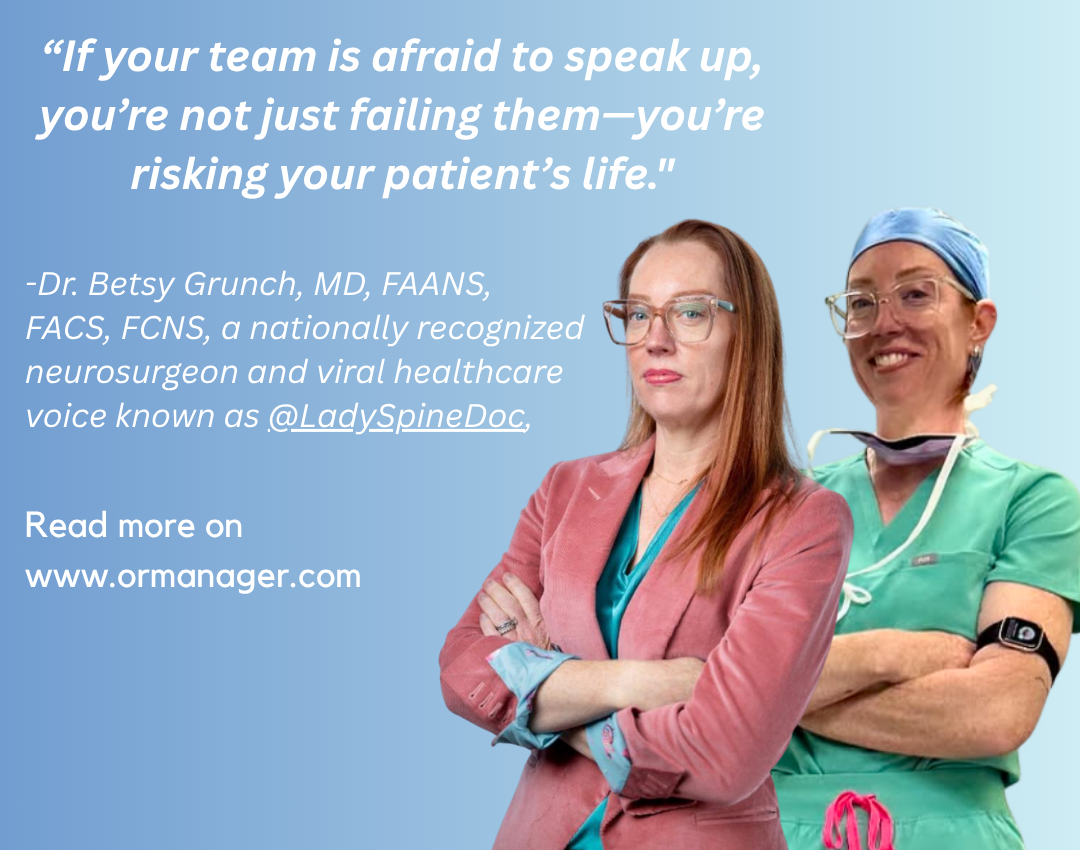
Perioperative leaders often have to make critical decisions, not just in the middle of an operational crisis but also somewhere in the edges—the routine but still high-stakes moments where leaders need to adjust resources or absorb costs under tight constraints. The economic margin for error continues to narrow, and many…

When Betsy Grunch, MD, FAANS, FACS, FCNS, board-certified neurosurgeon known on TikTok and Instagram as @Ladyspinedoc, watched a viral video of a surgeon berating an OR nurse during a livestreamed procedure, she was incredibly bothered by the shameful display. She took to her popular platform and spoke out against that…

Editor's Note Pain is common among surgeons, but new research in the American Journal of Surgery reveals the extent of the impact on the rest of the surgical team. Published July 6, the research involved surveying surgical teams and collecting self-reported data on musculoskeletal pain, comparing this data to self-reported…

Before Florence Nightingale revolutionized nursing in the mid-19th century, men played the crucial role of nurses on the battlefield. However, as time passed, nursing became a female-dominated profession. Men and women received the same level of training and worked together during World War I, but the men were called orderlies…

Editor's Note As robotic-assisted surgery continues to expand across specialties, perioperative nurses are driving operational excellence, clinical outcomes, and team coordination—often serving as the linchpin of these high-tech surgical programs. According to an April 16 article from the Cleveland Clinic, the health system’s robotic surgery program illustrates how nurses are…

Editor's Note Greater familiarity between surgeons and anesthesiologists was associated with reduced major morbidity in certain high-risk procedures, according to a Canadian retrospective cohort study published in JAMA Surgery. As detailed in a May 28 report from MedPage Today, the population-based analysis included more than 711,000 index procedures, finding an…

Takeaways • Credibility and trust are intertwined. • Keeping a covenant with staff, cultivating executive presence, and building relationships help establish credibility. • Situations that pose challenges to building credibility include the first leadership role and leading in areas where the new manager lacks expertise. Whether it is a first-time…

Editor's Note Stepping into a leadership role in the OR is both exciting and demanding. From budgeting and performance metrics to staffing and scheduling, there is a lot to navigate right from day one. To help new leaders step into their roles with confidence—and to offer fresh insights for seasoned…

Editor's Note A standing-room-only panel discussion outlined the strengths and challenges of multigenerational workforces Monday afternoon at the 2024 OR Manager Conference, offering insights into different generations' needs and values as well as strategies for fostering harmony. The panel, all from Main Line Health’s Lankenau Hospital, contained a representative from…

Editor's Note Automated surgical video analysis could enhance evaluation of an OR team’s nontechnical skills, according to a study published July 31 in JAMA Network Open. Conducted between January 2021 and May 2022, the cross-sectional study involved 30 cardiovascular surgical teams at a teaching hospital in Boston, Massachusetts. Using OpenPose,…